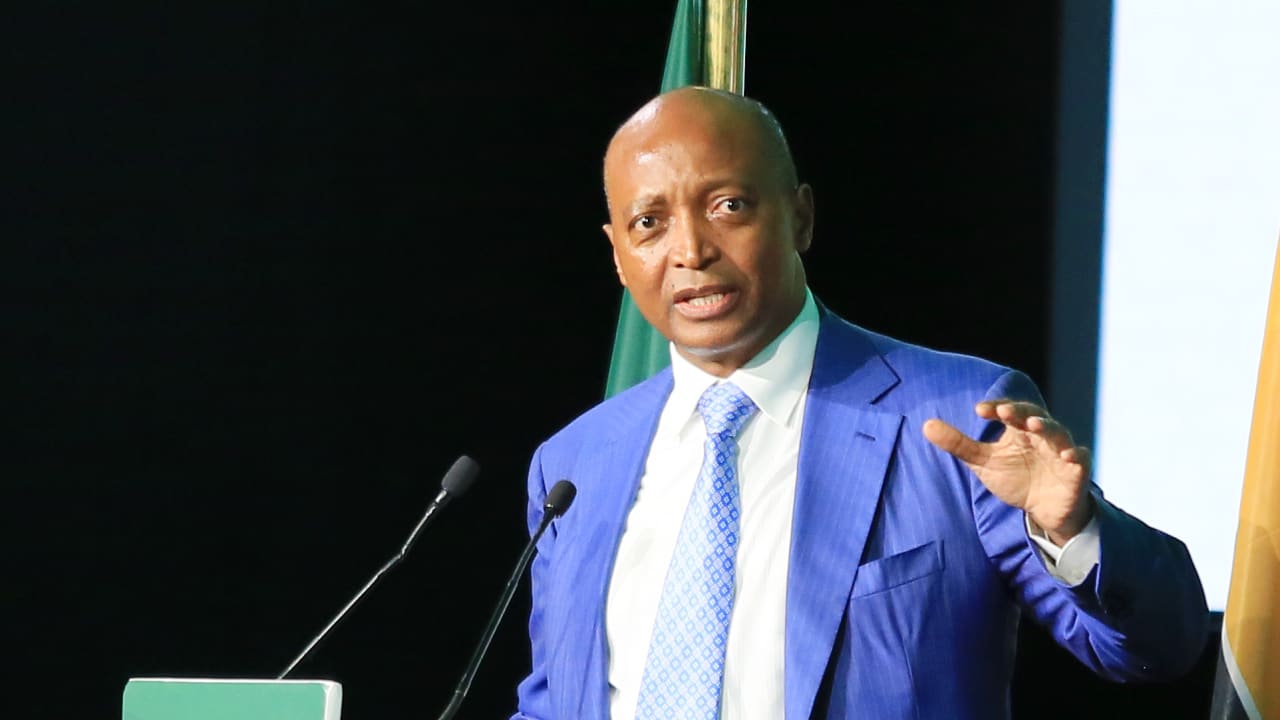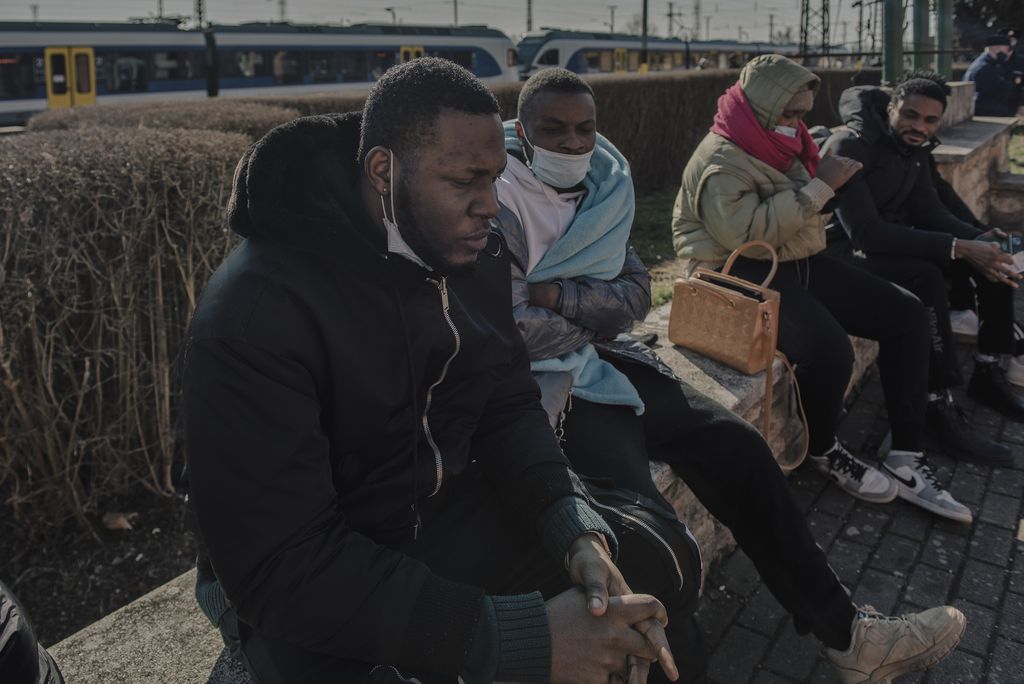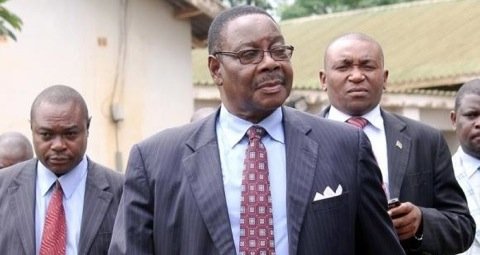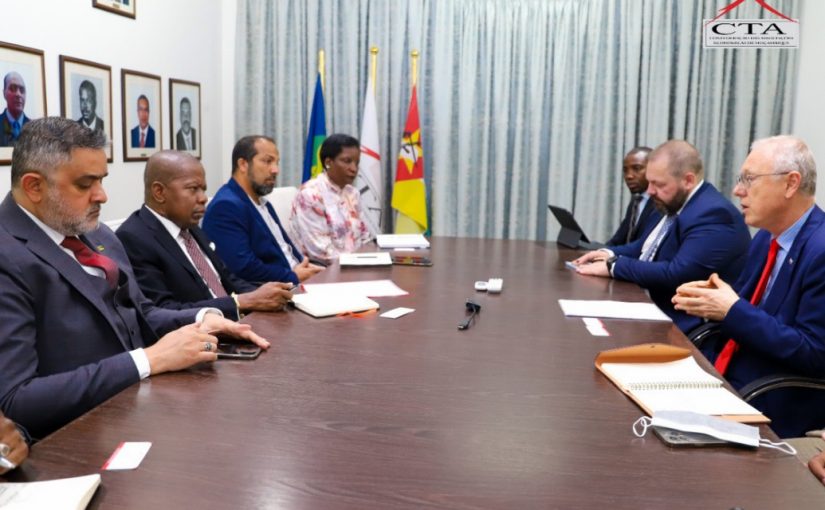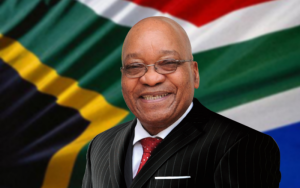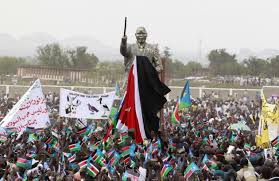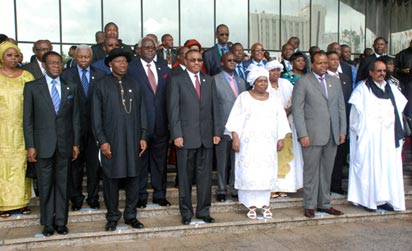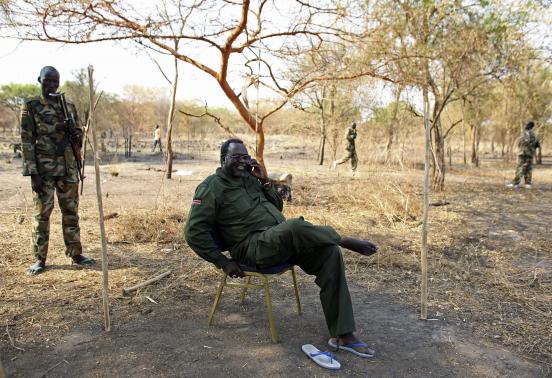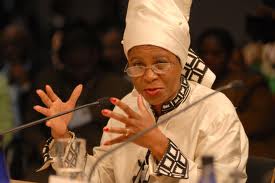Given the devastating leadership vacuum in the ANC and government, who can provide alternative direction, when the ANC is in power but unable to govern effectively, and is unlikely to do so, unless it gets a new leadership as quickly as possible?
Conventionally, it is difficult to imagine that country leadership can come from outside a dominant leadership of the governing party and president – because they control the levers of power, from where societal leadership is exercised.
Nevertheless, alternative leadership
can come from multiple sources within and outside the ANC, democratic institutions and civil society. Within the ANC and government individual leaders could provide alternative public leadership. Pravin Gordhan, as Finance Minister, is already providing alternative leadership as the de facto leader of the ANC – or at least of the true values of the party.
Gordhan may not be perfect, but part of the reasons why he is assailed by allies of the President is that he provides a moral authority which the President should have provided, which is not being provided by any other ANC leaders.
ANC veterans by publicly calling on the president and the current leadership to act in the interest of South Africa and not in their own self-interest are also providing alternative leadership. However, the ANC veterans do not hold any institutional power within the ANC or government. The ANC veterans can only rely on moral power – which is unfortunately in the current ANC has no currency anymore.
What is glaringly missing is alternative leadership from any of the top six leaders of the ANC. Provincial ANC branches could collectively provide alternative leadership in this crisis.
The Gauteng ANC provincial branch could, but is not positioning itself clearly, assertively and publicly as the alternative leadership of the ANC and president in this current crisis.
The ANC lost key metropolitan councils in the 3 August 2016 local government elections. This means that there are not many ANC mayors of powerful metropoles that can provide standout alternative national leadership.
Where else in society can alternative leadership come from? In a national leadership vacuum, Parliament is the obvious source of alternative leadership. The ANC Parliamentary Caucus – consisting of some of the party’s most senior cadres - has disappointingly not stepped up.
The Speaker of the National Assembly, in our constitutional democratic system is potentially an important alternative leadership figure in a national crisis. Sadly, the current Speaker, Baleka Mbete, has not turned the power of that office into an alternative national leadership office.
The ANC Parliamentary Caucus and the position of the Chief Whip are other offices which could provide alternative national leadership to the party and government. Beyond ANC Chief Whip Jackson Mthembu’s call for President Zuma and the entire ANC national executive committee to resign; and a similar call by Mathole Motshekga, the Chairperson of the Parliamentary Portfolio Committee on Justice and Correctional Services, the ANC Parliamentary Caucus has been stunningly subdued.
Individual ANC MPs have also gone missing. In the Nkandla scandal, where President Zuma used public money to refurbish his private homestead, the Constitutional Court reprimanded parliament for not holding the President and Executive accountable.
Opposition parties and leaders in parliament could also provide alternative national leadership, by holding the President and Executive accountable, either through speaking out publicly or through going to the courts to challenge wrong policies, decisions and behaviours.
In fact, opposition parties such as the Democratic Alliance and the Economic Freedom Fighters have in this parliamentary term changed the game, through use of the parliamentary process and the courts to hold the President and the Executive accountable.
Going forward, opposition parties must focus on issue-based coalitions in national and provincial parliaments and in local government to unlock public service delivery, hold the Executive to account and improve the lives of ordinary South Africans.
Mmusi Maimane, the leader of the DA, the official opposition, however, has not yet been able to position himself as alternative national leader, and the DA as the alternative government. Both Maimane and the DA have done a steady job in criticizing the President’s behavior and poor government policies and decisions.
This is the moment for Maimane to present himself as the
alternative president of the country, by providing direction on all the key national issues that worry rhe country, and for the DA to position itself as the alternative government. In the metros the DA is in control now, the party can show it is the alternative government by delivering public services efficiently where the previous ANC administrations failed.
Democratic institutions, and oversight bodies and agencies could also provide alternative leadership. Former Public Protector Thuli Madonsela played her constitutional role so efficiently that she in reality became
the alternative president of the country, around whom people of all races, classes and ideologies rallied.
Oversight organisations such as the Human Rights Commission and Gender Equality Commission have fallen disappointingly silent in this current national crisis. The judiciary and individual judges can also provide alternative leadership to society.
Such has been the poor leadership in the country that the courts have become increasingly the arbiter on public policies, decisions and behaviours. Some of these should have been resolved through political processes – however, these processes lack credibility because they have been captured by corrupt elements.
The Constitutional Court, together with the Public Protector, has become the most effective democratic institution in the country. The Constitutional Court, through its courageous judgements has reinforced public confidence in it – and has provided national direction on the thorniest issues.
The Chief Justice Mogoeng Mogoeng has increasingly played an influential national leadership role, by speaking out on official democratic abuses, unconstitutional decisions and behaviour.
Government departments and entities and their leaders, whether the National Treasury or state-owned entities (SOEs), should also play leadership roles. However, except for the National Treasury, officials in other government departments and SOEs have been silent.
What role for civil society? Civil society groups and activists have vigorously protested official abuses – through court action, taking to the streets and individual and collective public criticisms. This should continue.
But civil society groups should also play a stronger role in managing social, political and economic conflicts, which government, the president and the ANC leadership are increasingly unable to do, because of lack of credibility.
Business leaders should also play a pro-active role in holding government to account. The pledge by CEOs of large companies to support Finance Minister Pravin Gordhan against politically motivated prosecutions was a good one. However, business leaders must go further. They must pledge to become better corporate democratic citizens.
They must genuinely implement affirmative action, invest in skills development, pursue sustainable empowerment policies which genuinely empower current and former employees, local communities and support grassroots entrepreneurs, rather than politically connected capitalists.
South Africa urgently needs partnerships in every key economic sector where business, employees, trade unions and communities can foster social pacts in which each agree to compromises and commitments at either a sectoral level or at the level of the factory or mine, to grow the sectors or the mine or factory, whilst at the same time tackle inequality, poverty and unemployment.
What can individuals do? Individuals must express their outrage against undemocratic behaviour, join civil society groups in public action and persuade those in their immediate spheres of influence to do the same.
The instinctive reaction of many who care about their country is to withdraw from public activities and turn inwards to family and even group. However, individuals must become more involved in public activities, whether it is sitting on school boards, attending the meetings of local municipalities and challenging the councillors there, to volunteer in or support community organizations and charities with money and time.
These organizations fill the gap when government fails. Of course, we want government to actually do the job. Volunteering to teach in a poor school, whether it is teaching mathematics, life skills or a sporting skill, will make a difference. Furthermore, form lobby groups to protest, for example, anything from potholes to corrupt policemen or laws that do not make sense. Make sure that such groups have members of other race groups also: such issues affect all, no matter race.
Members and supporters of political parties must also hold their leaders more accountable, whether it is the ANC or making the opposition parties more credible. As individuals, support organizations on issues that we believe in: if a trade union criticizes something we agree with, support it. Responsible ANC members must also do more to make the party more responsible and to elect more responsible leaders.
Furthermore, in the absence of responsible political leaders, corporate, civil and church leaders must show exemplary leadership, as alternative models of responsible leadership.
This is an edited version of a speech delivered at the Studies in Poverty and Inequality Institute (SPII) conference, “Towards a decent standard of living for all in a transparent democracy”, 10 November 2016
*Pambazuka. William Gumede is Associate Professor, School of Governance, University of the Witwatersrand, and Chairman of the Democracy Works Foundation. He is author of the bestselling Restless Nation: Making Sense of Troubled Times.

